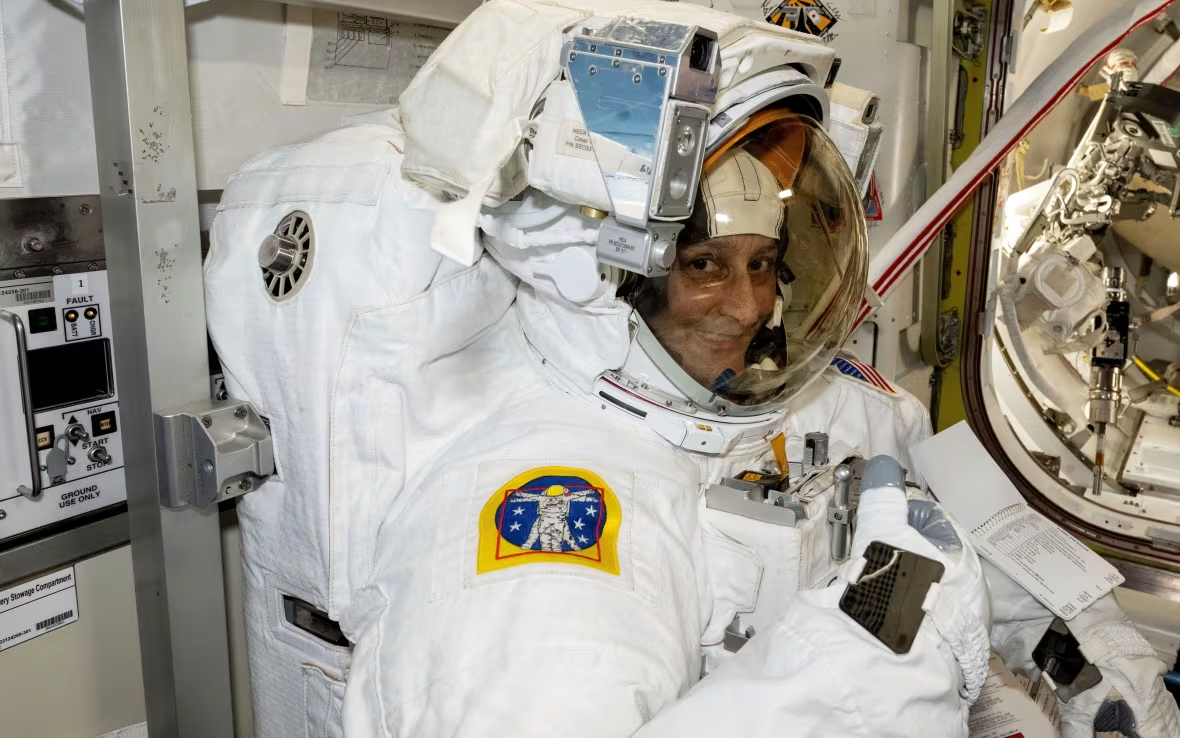Stranded NASA astronaut gets change of pace with spacewalk, after 7 months in orbit
Suni Williams embarked on her 8th spacewalk on Thursday

One of NASA's two stuck astronauts got a much welcomed change of scenery Thursday, stepping out on her first spacewalk since arriving at the International Space Station more than seven months ago.
Suni Williams, the station's commander, tackled some overdue outdoor repair work, alongside colleague Nick Hague. They emerged as the orbiting lab sailed 420 kilometers above Turkmenistan.
"I'm coming out," Williams radioed.
Williams got a close-up look at the SpaceX capsule that will bring her home this spring, floating just a few feet away from the parked vessel as she worked to replace a planar reflector on the outside of the space station. The process took diligence, but she eventually prevailed without damaging her ride.
Plans called for Williams to float back out next week with Butch Wilmore on another spacewalk. The two launched aboard Boeing's new Starliner capsule last June on what should have been a weeklong test flight. But Starliner trouble dragged out their return, and NASA ordered the capsule to come back empty.
Then SpaceX delayed the launch of their replacements, meaning the two won't be home until late March or early April — 10 months after launching.

Walking among the stars
It was the first spacewalk by NASA astronauts since an aborted one last summer. U.S. spacewalks were put on hold after water leaked into the airlock from the cooling loop for an astronaut's suit. NASA said the problem has since been fixed.
This was the eighth spacewalk for Williams, who has lived on the space station before, and the fourth for Hague.
Hague and Williams were set to replace station hardware and repair the station's Neutron Star Interior Composition ExploreR (NICER) C-ray telescope. Part of that process includes placing wedge-shaped patches in certain spots on the telescope to reduce unwanted sunlight from interfering with the X-ray measurements it takes.

The spacewalk, which started at 8 a.m. ET, will last around 6½ hours, and is the 273rd spacewalk for ISS maintenance.
With files from CBC News
